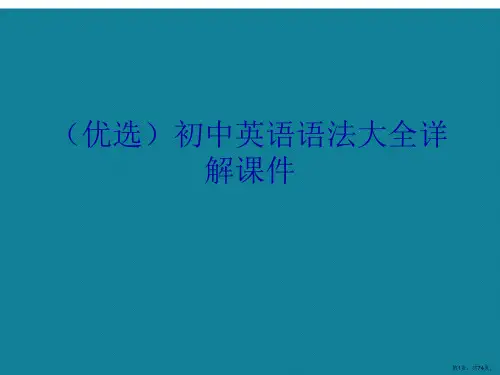初中英语知识点总结.ppt
- 格式:ppt
- 大小:336.21 KB
- 文档页数:12

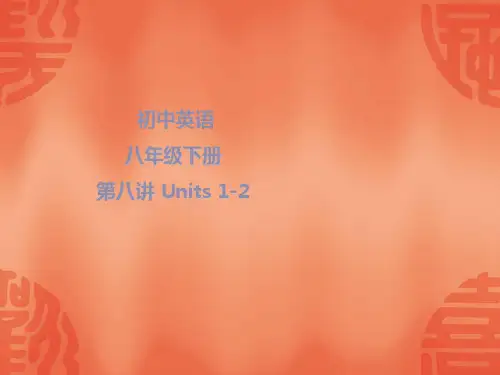
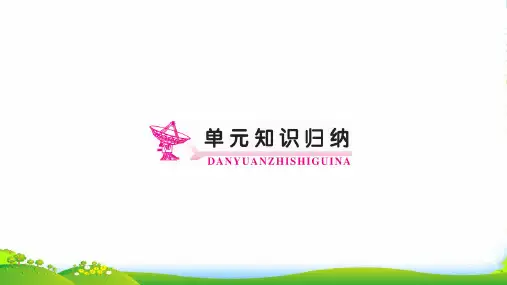
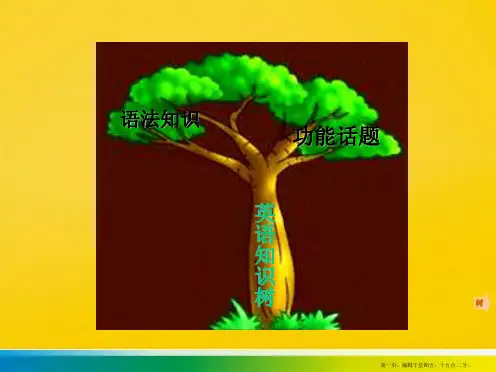
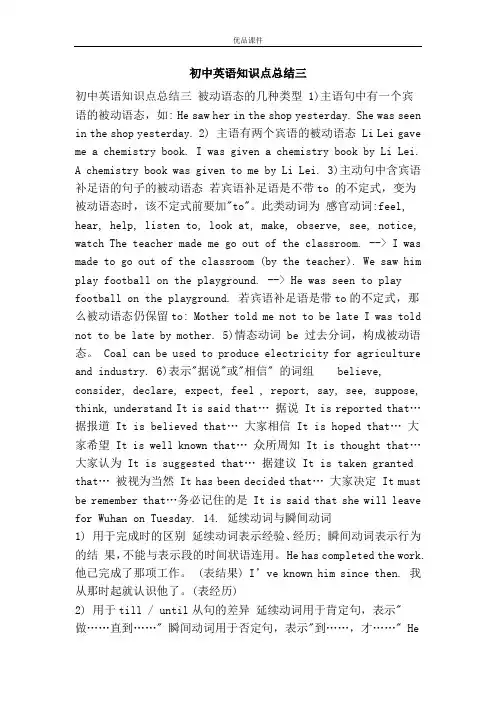
初中英语知识点总结三初中英语知识点总结三被动语态的几种类型 1)主语句中有一个宾语的被动语态,如: He saw her in the shop yesterday. She was seen in the shop yesterday. 2) 主语有两个宾语的被动语态 Li Lei gave me a chemistry book. I was given a chemistry book by Li Lei.A chemistry book was given to me by Li Lei. 3)主动句中含宾语补足语的句子的被动语态若宾语补足语是不带to 的不定式,变为被动语态时,该不定式前要加"to"。
此类动词为感官动词:feel, hear, help, listen to, look at, make, observe, see, notice, watch The teacher made me go out of the classroom. --> I was made to go out of the classroom (by the teacher). We saw him play football on the playground. --> He was seen to play football on the playground. 若宾语补足语是带to的不定式,那么被动语态仍保留to: Mother told me not to be late I was told not to be late by mother. 5)情态动词 be 过去分词,构成被动语态。
Coal can be used to produce electricity for agriculture and industry. 6)表示"据说"或"相信" 的词组consider, declare, expect, feel , report, say, see, suppose, think, understand It is said that… 据说It is reported that… 据报道It is believed that… 大家相信It is hoped that… 大家希望It is well known that… 众所周知It is thought that… 大家认为It is suggested that… 据建议 It is taken granted that… 被视为当然It has been decided that… 大家决定 It must be remember that…务必记住的是 It is said that she will leave for Wuhan on Tuesday. 14. 延续动词与瞬间动词1) 用于完成时的区别延续动词表示经验、经历; 瞬间动词表示行为的结果,不能与表示段的时间状语连用。
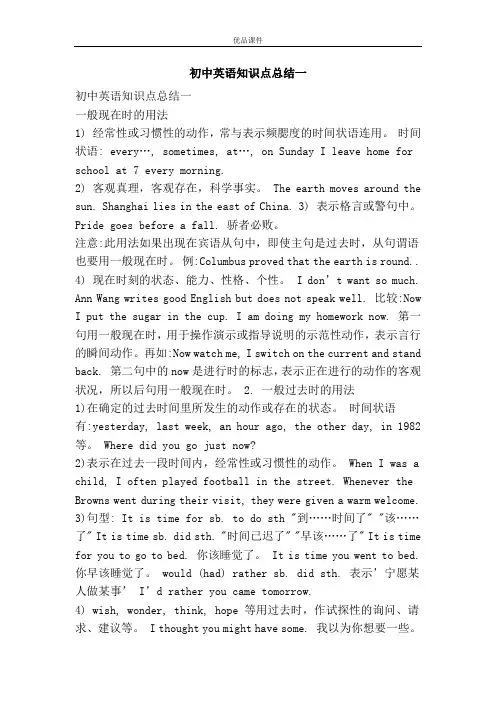
初中英语知识点总结一初中英语知识点总结一一般现在时的用法1) 经常性或习惯性的动作,常与表示频腮度的时间状语连用。
时间状语: every…, sometimes, at…, on Sunday I leave home for school at 7 every morning.2) 客观真理,客观存在,科学事实。
The earth moves around the sun. Shanghai lies in the east of China. 3) 表示格言或警句中。
Pride goes before a fall. 骄者必败。
注意:此用法如果出现在宾语从句中,即使主句是过去时,从句谓语也要用一般现在时。
例:Columbus proved that the earth is round..4) 现在时刻的状态、能力、性格、个性。
I don’t want so much. Ann Wang writes good English but does not speak well. 比较:Now I put the sugar in the cup. I am doing my homework now. 第一句用一般现在时,用于操作演示或指导说明的示范性动作,表示言行的瞬间动作。
再如:Now watch me, I switch on the current and stand back. 第二句中的now是进行时的标志,表示正在进行的动作的客观状况,所以后句用一般现在时。
2. 一般过去时的用法1)在确定的过去时间里所发生的动作或存在的状态。
时间状语有:yesterday, last week, an hour ago, the other day, in 1982等。
Where did you go just now?2)表示在过去一段时间内,经常性或习惯性的动作。
When I was a child, I often played football in the street. Whenever the Browns went during their visit, they were given a warm welcome.3)句型: It is time for sb. to do sth "到……时间了" "该……了" It is time sb. did sth. "时间已迟了" "早该……了" It is time for you to go to bed. 你该睡觉了。
